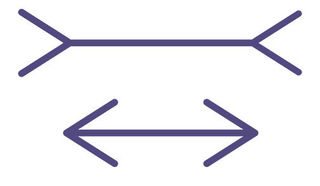Post-Traumatic Stress Disorder
WEIRD Science: We Are the Weirdest People in the World
We are the weirdest people in the world.
Posted December 29, 2010

"The Weirdest People in the World?" That's the title of a provocative paper published this year in Behavioral and Brain Sciences. The authors, an anthropologist and two psychologists, were describing the subjects of behavioral experiments, but not in reference to the obvious outliers and oddballs that enable scientists to explore what happens When Things Go Wrong. Instead, they argue, the nominally normal subjects used in the bulk of published research are actually the outliers, for they are WEIRDos—members of Western, Educated, Industrialized, Rich, and Democratic societies—and cannot stand in for the majority of the human race.
The authors—Joseph Henrich, Steven Heine, and Ara Norenzayan of the University of British Columbia—compiled numerous studies showing significant cross-cultural differences in areas including decision-making, cooperation, self-concept, and even seemingly hard-wired functions such as visual perception. Consider the popular Müller-Lyer illusion: two line segments of equal length, one book-ended by inward-pointing arrowheads, the other by out-ward-pointing ones. Undergraduates in Illinois judged the first segment about 20 percent longer than the second, but this number differs significantly from 14 small-scale societies, some of whom see no illusion at all, perhaps because of less exposure to carpentered corners.

Among industrialized societies, Westerners show an especially high degree of analytical as opposed to holistic reasoning. Within Western societies, Americans tend to be particularly individualistic instead of collectivistic. And college-educated Americans uniquely downplay divinity in their moral reasoning. The list of differences goes on. Further, WEIRDos are not just any narrow subject pool, but a particularly unrepresentative one, at the far end of the spectrum on many measures. In fact, the researchers write, they "may represent the worst population on which to base our understanding of Homo sapiens." WEIRDos really are weird.
And while it may be ironic that the world's most atypical people are the ones dominating the study of people, it's no coincidence: several of the traits that make WEIRDos so atypical, such as their extreme self-focus and analytical reasoning, are the very ones that drive them to conduct psychology research.
The implications of WEIRD science extend globally, the researchers say. For example, exporting our home-brewed brands of democracy and education and our egocentric models of mental illness may not resonate everywhere. As the author Ethan Watters points out in his new book Crazy Like Us, inappropriate diagnosis of PTSD in foreign cultures such as post-tsunami Sri Lanka has undermined local healing practices.
The researchers recommend that journal editors, granting agencies, and universities force psychologists to defend their generalizations, incentivize them to use wider subject pools, and assist them in international collaborations. And paper authors using WEIRD subjects should avoid describing how "people" and "humans" think, even if it means restricting their findings to "American undergraduates." "Language is the easy change which will make a difference," Heine says.
FUN FACTS:
•An analysis of top psychology journals found that 96% of subjects come from Western industrialized nations, which contain only 12% of the world's population.
•67% of American subjects and 80% of international subjects are undergraduate psychology students.
•An American undergraduate is 4,000 times more likely to be a subject in a psychology experiment than a random person outside the West.
[This article was originally written for The New York Times Magazine.]


